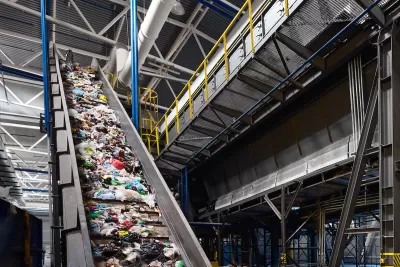Recycling offers modest environmental benefits but faces significant challenges in effectiveness and scalability, requiring systemic changes like reducing plastic production and exploring alternative waste reduction strategies.

Recycling has long been championed as a solution to reducing plastic waste and conserving resources, but its effectiveness remains fraught with challenges. Despite its good intentions, the world produces over 507 million tons of plastic annually, with less than 10 percent recycled globally. In the U.S., only a fraction of recyclable materials—such as glass, cans, and plastics—avoid landfills due to inadequate infrastructure and low participation rates. Compounding the problem, most plastics, even those bearing the familiar recycling symbol, cannot be effectively recycled, often ending up in landfills or polluting ecosystems.
As reported by Julia Musto, experts argue that recycling alone cannot solve the growing plastic waste crisis. Greenpeace and other organizations highlight that the plastics industry has long promoted recycling while increasing production, which is projected to triple by 2050. Toxicity concerns also grow with recycling, as many plastics leach harmful chemicals. Critics like MIT’s Andrew McAfee suggest that focusing on landfill disposal may be more environmentally sound than perpetuating ineffective recycling practices, given the minimal reduction in greenhouse gas emissions achieved through recycling.
While recycling has limitations, it still offers modest environmental benefits, such as saving energy and cutting water use compared to alternatives like incineration. However, experts emphasize the need for systemic change to make a meaningful impact. This includes reducing plastic production, investing in better recycling infrastructure, addressing contamination issues, and exploring complementary waste reduction strategies like composting, upcycling, and reusable systems. Without significant reforms, the environmental crisis driven by plastic waste will continue to escalate.
FULL STORY: Is recycling worth it?

Maui's Vacation Rental Debate Turns Ugly
Verbal attacks, misinformation campaigns and fistfights plague a high-stakes debate to convert thousands of vacation rentals into long-term housing.

Planetizen Federal Action Tracker
A weekly monitor of how Trump’s orders and actions are impacting planners and planning in America.

In Urban Planning, AI Prompting Could be the New Design Thinking
Creativity has long been key to great urban design. What if we see AI as our new creative partner?

Portland Raises Parking Fees to Pay for Street Maintenance
The city is struggling to bridge a massive budget gap at the Bureau of Transportation, which largely depleted its reserves during the Civd-19 pandemic.

Spokane Mayor Introduces Housing Reforms Package
Mayor Lisa Brown’s proposals include deferring or waiving some development fees to encourage more affordable housing development.

Houston Mayor Kills Another Bike Lane
The mayor rejected a proposed bike lane in the Montrose district in keeping with his pledge to maintain car lanes.
Urban Design for Planners 1: Software Tools
This six-course series explores essential urban design concepts using open source software and equips planners with the tools they need to participate fully in the urban design process.
Planning for Universal Design
Learn the tools for implementing Universal Design in planning regulations.
Gallatin County Department of Planning & Community Development
Heyer Gruel & Associates PA
JM Goldson LLC
City of Camden Redevelopment Agency
City of Astoria
Transportation Research & Education Center (TREC) at Portland State University
Jefferson Parish Government
Camden Redevelopment Agency
City of Claremont





























